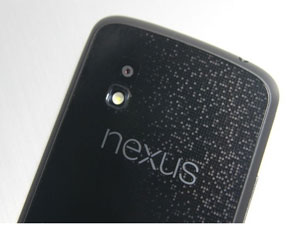



Date:28/06/12
 Days after Microsoft presented its Surface concept, Google has debuted the Nexus 7, its first own-branded tablet – a low-cost, quad-core device running Android Jelly Bean, reported Computing.
Days after Microsoft presented its Surface concept, Google has debuted the Nexus 7, its first own-branded tablet – a low-cost, quad-core device running Android Jelly Bean, reported Computing.
Unlike the Microsoft Surface, which is based on Windows 8, the Google devices will be available worldwide from July.
The Nexus features a 7in display, and will be based on Nvidia's Kai system-on-a-chip platform, featuring a quad-core Nvidia Tegra 3 chipset.
Google surprised some by announcing that the device is being made by Taiwanese manufacturer and own-brand netbook maker Asus, which also makes components for a number of other US technology brands, including Apple and HP.
The 8GB Nexus 7 will be priced competitively with Amazon's Kindle Fire at $199 (£127, although the UK price is likely to be £199 in traditional “change the symbol, but not the figure” fashion). The device is also of similar phyiscal size to the Kindle. A 16GB version will cost £249.
The announcement paves the way for the mobile technology battle of the decade: Apple's i-branded devices running iOS apps and interfacing with the Apple ecosystem; Microsoft's own-brand Surface offering Windows 8 RT and Pro, underwritten by the perceived goodwill from Microsoft's vast installed base of business users; Google's Android-powered ecosystem and, now, its own-brand devices; and the dark horse of the business world, Amazon – thought of as a retailer, but also a company whose infrastructure services power many web-based enterprises.
• Google also demonstrated “Project Glass”, its augmented reality glasses that offer a radically different interface experience to the touchscreen.
As location-based applications both enable and create new forms of content that overlay a virtual content layer onto the physical world depending on the user's real-world location, augmented reality interfaces open up huge potential for new forms of public service, retail and advertising.
Google will make the glasses available to developers in 2013, it said.Also unveiled was the Nexus Q, a screen-less computer designed to be connected to a TV, pitched directly at a space where Apple has recently been strong.
Google unveils own-brand Nexus 7 tablet
 Days after Microsoft presented its Surface concept, Google has debuted the Nexus 7, its first own-branded tablet – a low-cost, quad-core device running Android Jelly Bean, reported Computing.
Days after Microsoft presented its Surface concept, Google has debuted the Nexus 7, its first own-branded tablet – a low-cost, quad-core device running Android Jelly Bean, reported Computing.Unlike the Microsoft Surface, which is based on Windows 8, the Google devices will be available worldwide from July.
The Nexus features a 7in display, and will be based on Nvidia's Kai system-on-a-chip platform, featuring a quad-core Nvidia Tegra 3 chipset.
Google surprised some by announcing that the device is being made by Taiwanese manufacturer and own-brand netbook maker Asus, which also makes components for a number of other US technology brands, including Apple and HP.
The 8GB Nexus 7 will be priced competitively with Amazon's Kindle Fire at $199 (£127, although the UK price is likely to be £199 in traditional “change the symbol, but not the figure” fashion). The device is also of similar phyiscal size to the Kindle. A 16GB version will cost £249.
The announcement paves the way for the mobile technology battle of the decade: Apple's i-branded devices running iOS apps and interfacing with the Apple ecosystem; Microsoft's own-brand Surface offering Windows 8 RT and Pro, underwritten by the perceived goodwill from Microsoft's vast installed base of business users; Google's Android-powered ecosystem and, now, its own-brand devices; and the dark horse of the business world, Amazon – thought of as a retailer, but also a company whose infrastructure services power many web-based enterprises.
• Google also demonstrated “Project Glass”, its augmented reality glasses that offer a radically different interface experience to the touchscreen.
As location-based applications both enable and create new forms of content that overlay a virtual content layer onto the physical world depending on the user's real-world location, augmented reality interfaces open up huge potential for new forms of public service, retail and advertising.
Google will make the glasses available to developers in 2013, it said.Also unveiled was the Nexus Q, a screen-less computer designed to be connected to a TV, pitched directly at a space where Apple has recently been strong.
Views: 753
©ictnews.az. All rights reserved.Similar news
- The mobile sector continues its lead
- Facebook counted 600 million active users
- Cell phone testing laboratory is planned to be built in Azerbaijan
- Tablets and riders outfitted quickly with 3G/4G modems
- The number of digital TV channels will double to 24 units
- Tax proposal in China gets massive online feedback
- Malaysia to implement biometric system at all entry points
- Korea to build Green Technology Centre
- Cisco Poised to Help China Keep an Eye on Its Citizens
- 3G speed in Azerbaijan is higher than in UK
- Government of Canada Announces Investment in Green Innovation for Canada
- Electric cars in Azerbaijan
- Dominican Republic Govt Issues Cashless Benefits
- Spain raises €1.65bn from spectrum auction
- Camden Council boosts mobile security





















